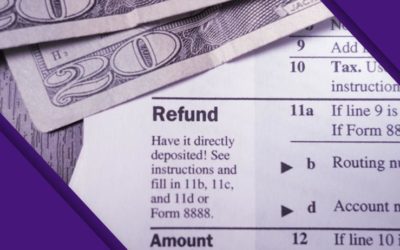By Jamie Wagner, Ph.D.
Economic Fall
April is Financial Literacy Month, and it’s important to take a look at what our state is doing to educate youth. Ever since the financial crisis between 2007 and 2009, more and more focus has shifted to financial literacy especially for young people. The effects of the crisis were far-reaching. People borrowed more money than they could afford on houses, had little to no savings and generally did not manage their money well. While it was a tough lesson to learn, it was a necessary one that hopefully will not be repeated.
Financial Education
Millennials were among the first generation to take personal finance courses in high school, and in some states it is even a graduation requirement. The next generation, the iGen (or Gen Z) has an even greater focus on financial literacy and personal finance in the hopes of improving their financial standing and buffering themselves from the major effects felt by so many Americans during the Great Recession. Therefore, to prevent becoming a victim of future financial catastrophe, it is important for young people to be financially literate. One specific organization, the Nebraska Council on Economic Education, is making sure students across Nebraska are set up for financial success.
Nebraska Council on Economic Education Initiatives
The Council works with K-12 educators across the state as a resource to help them improve their economic and personal finance teaching. Teachers learn new lessons, simulations and other ways to engage their students in the classroom. In addition to the resources for teachers, the Council also hosts several student programs including state and national competitions. The premier student programs are:
- The Nebraska Stock Market Game
- The Nebraska Economics Challenge
- The Nebraska Finance Challenge
- In School Savings Program
- Financial literacy concerts
Yes, you read that correctly – financial literacy concerts! This is a program where the music is cool, and the message about saving and investing is even cooler. The Council has brought GOODING and Carter Hulsey to play concerts at high schools and middle schools across the state. To date, they have reached 15,500 students with this unique performance. Centris has hosted several events across the state since 2015.
Economic and Personal Finance Efforts Across Nebraska
Throughout the year, various news and media outlets will “grade” states for their financial literacy efforts. This grade is based off of various criteria including having personal finance in the state standards, if there is a course in high school and whether the course is required for graduation. One article from the Champlain College’s Center for Financial Literacy gives Nebraska a “C.” In academic terms that is average.
I would strongly disagree with that grade as there are many great things going on here. Additionally, Nebraska is a local control state so districts have control over their requirements. Therefore, this calls for more information and a large data collection process. Jennifer Davidson, president of the Nebraska Council on Economic Education, took it upon herself to look at the granular information for each district to see exactly what was going on in Nebraska.
In December 2017 Jennifer sent a survey to the superintendents of Nebraska’s 244 districts (and even called some that did not respond for a complete data set). Here’s what she found:
- Almost half of Nebraska students are required to take economics to graduate high school (55 of the 244 districts)
- 60 percent of Nebraska students are required to take personal finance (95 of the 244 districts)
- 86 percent of school districts offer a personal finance course
The Future of Education
While there’s clearly room to grow, Nebraska is doing well and is on the right track. The ultimate goal is to provide exposure to every Nebraska student as it relates to personal finance before they leave high school and are able to make important financial decisions. You can help make a difference by checking with your school and district. The Council would be happy to partner and provide information with any district in the state. Also, you can make an impact in the lives of Nebraska youth (and beyond) by making a donation. All donations go to programming and resources for teachers. Overhead and other workshop expenses are funded through other avenues like grants. Consider donating to not only invest in the current students of Nebraska but for the future of Nebraska. People who are financially literate and understand economics make for a stronger community—a stronger Nebraska.



